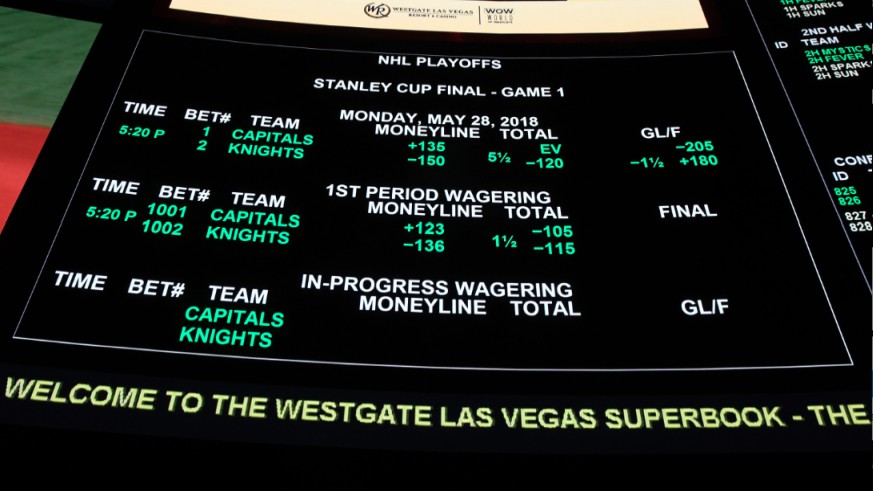How Do Sports Gambling Odds Work
Betting odds represent the probability of an event to happen and therefore enable you to work out how much money you will win if your bet wins. As an example, with odds of 4/1, for every £1 you bet, you will win £4. There is a 20% chance of this happening, calculated by 1 / (4 + 1) = 0.20. With decimal odds, the entire amount is calculated at one go. For example, you bet $/£100 on a sports event which has decimal odds of 1.60. In order to calculate how much you can win in total all you need to do is multiply your stake with the decimal odds. In this case, it’s 100 x 1.6 which gives us a.
Betting odds explained by sportsfreebets.ukA New Look at Sports’ Betting
Sports’ betting is one of the most popular pastimes around the world. It involves placing money on sports’ events involving personalities, teams, horses and more, with the aim of winning money in the best available odds.
Sports’ betting involves predicting who the winner could be and placing sums of money on your choice for a win. If your predictions come true you stand to earn money from the wager you placed with the booking agent, aka bookmaker or bookie.
So an understanding what betting odds are, their purpose and the types of betting odds is important. The following serves as an overall summary of sports betting explained...
What are betting odds? Types of odds

Odds calculate how much the amount bettors' payments or stakes will increase by if their bet wins. Betting odds are calculated by bookies with whom bettors have taken a bet or wager and once your bet has been settled they become fixated. This means you will receive your payout based on the odds at the time of buy-in. E.g. If at the time of placing your bet you were to buy-in at 1.5 odds and as the event approaches they decrease to 1.4, you would still receive your payout based on odds of 1.5.
The higher the odds the more bettors will win and the reverse is also true, the lower the odds the lower the pay-out. The height of the odds is determined by the likelihood of the event or win taking place.
We can take horse racing for a simple example. The top-rated and fastest horse is more likely to have huge amounts of bets and cash on it, and so the pay-out or winning amounts for the bettors of the top horse will be far lower; whereas the least popular or normally slowest horse, aka ‘donkey’, is less likely to win so the stakes or money paid out will be far higher if the donkey romps home first. Sports lovers also like to take a gamble on betting on a least liked horse in the hope of winning a lot of money.

Types of betting odds
There are three different types of betting odds depending on which country one is in. They are fractional, decimal and Moneyline/US odds.
The three types of odds are different ways betting but do not affect the amounts punters win from betting. How to choose? The UK betting form of fractional odds betting is the most popular, particularly for horse racing. However, some punters say that decimal odds’ betting is far easier.
* Fractional Betting
One of the oldest forms of betting is fractional betting, which is practised in the UK and many of its commonwealth countries. In these countries traditionally, on Friday nights particularly, betting on a favourite and a drink at the pub go hand in hand.

In fractional betting there are two sets of numbers separated by a forward slash, such as 5/1, pronounced as 'five-to-one'. This odd means that for every £1 you bet, if you’re your bet wins, you win an additional £5, plus the £1 you initially paid in, making it a £6 win. If the odds are 10/1 ('10-to-one'), you win £10, plus your initial £1, so your winnings are £11.
According to mybettingsites.co.uk, bettors can calculate the likelihood of their bets winning and know how much they can win. It suggests replacing numbers with letters for example, 4/1 becomes A/B. Here is the calculation:
Probability (%) = B / (A+B).
9/1 is figured as 1 / (9 + 1) = 0.10 – so there is a 10% likelihood of the desired outcome.
4/1 is figured as 1 / (4 + 1) = 0.20 – so there is a 20% likelihood of the desired outcome.
1/1 can be figured as 1 / (1 + 1) = 0.50 – so there is a 50% likelihood of the desired outcome.
1/4 is figured as 4 / (4 + 1) = 0.80 – so there is an 80% likelihood of the desired outcome.
* Decimal Odds Betting
Decimal odds are used in European countries so are known as European, continental or digital odds. But these odds are also practised in Canada and New Zealand.
Decimal odds are so called because they use a decimal point to separate the total pay-out and the original money betted, or stake.
The number shows how much the total pay-out will be, including the amount or stake the bettor originally paid to the bookie. So a winning bet at £2.5 will give the bettor £2.50 for every £2 paid. Even number bets are written as £2.00. Decimal bets therefore show the total return of wining money, not the profit.
According to investopedia.com, the total (potential) return on a stake can be calculated as: Total Return = Stake x Decimal Odd Number, such as reflected on renowned betting sites for the US 2020 Presidential election. These were the odds on 21 March 2020, (odds subject to change as the election approaches) for the top three candidates considered mostly likely to win:
Donald Trump: 3.00
Bernie Sanders: 11.00
Elizabeth Warren: 13.00
LaVar Ball US media personality and sports; businessman: 251.00
The above shows, obviously, that the bookmaker, predicts Donald Trump as the winner of the election. Investopedia says the higher the total pay-out/decimal odd, the less likely or less probable (and riskier for the bettor) it is for that candidate to win the US election.
* American (US) or Moneyline Odds
The American odds are used mostly in the US. The odds of top bets show a minus (-) sign. This shows the amount you need to pay to the bookie to win $100. The odds for the least popular show a plus sign (+). This shows the amount won (including the initial wager) for every $100 staked.
Odds of $ +150, show the bettor he can win $150 for every $100 he pays to the bookie, plus the initial stake of $100. Odds of -150 means the bettor needs to pay $150 to return $100 in winnings, plus the initial stake of $150. Even money odds means you win an amount the same as your initial payment and is written as +100.
Some online sites like onlinegambling.com offer the ability to calculate sports betting odds in different formats and compare them against each other, plus improve one's gambling ability with a sports’ odds calculator.
Featured Free Bets

Betfred£30Free Bet
Promo Code SPORTS60New CustomersFree BetsClaim £30 Free BetNew UK & NI customers only. promo code ‘SPORTS60’. Deposit & place first sports bet of £10+ in one bet transaction, at odds of Evens (2.0) +. settled within 60 days. First bet must be on Sports. £30 in Free Bets credited within 48 hours of bet settlement, 7-day expiry. Payment restrictions apply. SMS validation may be required. Max 60 Free Spins on Justice League Comics. 7-day expiry.Full T&Cs apply.
William Hill£30Free Bet
Promo Code C30New CustomersHow Does Gambling Odds Work
Free BetsClaim £30 Free BetBetting Odds How It Works
New customers who register, deposit & bet via Mobile only, min £10 stake, win only, min odds 1/2, free bets credited as 2 X £15 (30 day expiry), free bet/player/payment method/country restrictions apply. *By entering the Promo code in the box above you agree to the full terms and conditions of this promotion as displayed below.* See full terms below.



